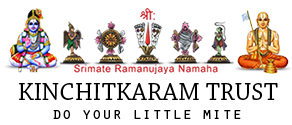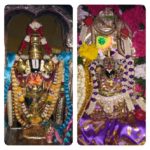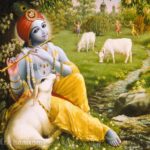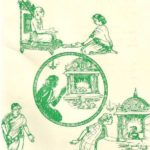How to distinguish the thought process emanating from mind and intelligence?
- Liked by
Thoughts are sourced from mind. Buddhi or Intelligence helps to control it.
For example, we see some gold coin on street. Mind may say, pick it up and keep for yourself. But, buddhi analyses the case. It thinks whether it is Dharma or Adharma to keep. With the help of this buddhi, a Chetana commands mind to act accordingly. A person who has good buddhi will not keep it for himself. He will either try to find it’s owner or handover in police station.
In case of animals and birds, the intervention of buddhi is very less compared to humans. They just act as per what mind says, in most of cases.
So, mind gives rise to random thoughts. But, buddhi analyses it with facts and figures we know and presents the case for decision by Chetana.
Even in case of few humans who have mandha buddhi and not god fearing, they may not analyse Dharma or Adharma and may just pickup the coin and keep it for themselves without a second thought even.
The percentage of this buddhi or arivu depends on our karma and destiny.
Sarvam Shri Krishnaarpanamastu!
- Liked by
Katopanishad compares human with a chariot.
The chariot is body. Five horses are five senses. It tries to run in different directions in random fashion. The ropes that are tied to the horses are mind, which also runs behind the horses or senses. The charioteer, who controls this rope or mind is buddhi or intelligence. If charioteer does not work, the chariot will collapse.
The traveller in the chariot is Jivatma. He is the one who reaches the destiny travelling in this chariot with the help of horses, rope and charioteer. The destiny is decided by traveller and not horses, ropes or charioteer. The path of travel is life in the world with lot of difficulties.
Paramatma is the indweller of Jivatma and guides Jivatma to his destiny.
- Liked by
Hare Krishna! Aneha koti namaskaram to Sri Velukkudi swami & devotees.
Please check Bhagavad Gita slokas 18.20, 21, 22 and 18.30, 31, 32 and 18.33, 34, 35.
Also please check swami’s Bhagavad Gita upanyasam Chapter 2 Track 50.
Sarvam Sri Krishnaarpanam!
- Liked by
Sri Ramanuja Munaye Namaha,
Sri Velukkudi Krishnan Swami Guruvae Namaha,
Super Bhakta’s for the reference from Swami’s Pravachanams.
Adiyen Sri Velukkudi Krishna Dasan,
Uyya Oraey Vazhi UdayavAr ThiruvAdi,
Sarvam SriKrishna Kudumbham.
Aneka Namaskaram,
Thank you all for explaining the difference.
Very much appreciate your valuable time.
- Liked by
Hare Krishna! Aneha koti namaskaram to Sri Velukkudi Swami & devotees.
Srimad Bhagavatam 4.29.18-20 — Nārada Muni continued: What I referred to as the chariot was in actuality the body. The senses are the horses that pull that chariot. As time passes, year after year, these horses run without obstruction, but in fact they make no progress. Pious and impious activities are the two wheels of the chariot. The three modes of material nature are the chariot’s flags. The five types of life air constitute the living entity’s bondage, and the mind is considered to be the rope. Intelligence is the chariot driver. The heart is the sitting place in the chariot, and the dualities of life, such as pleasure and pain, are the knotting place. The seven elements are the coverings of the chariot, and the working senses are the five external processes. The eleven senses are the soldiers. Being engrossed in sense enjoyment, the living entity, seated on the chariot, hankers after fulfillment of his false desires and runs after sense enjoyment life after life.
Sarvam Sri Krishnaarpanam!
- Liked by



